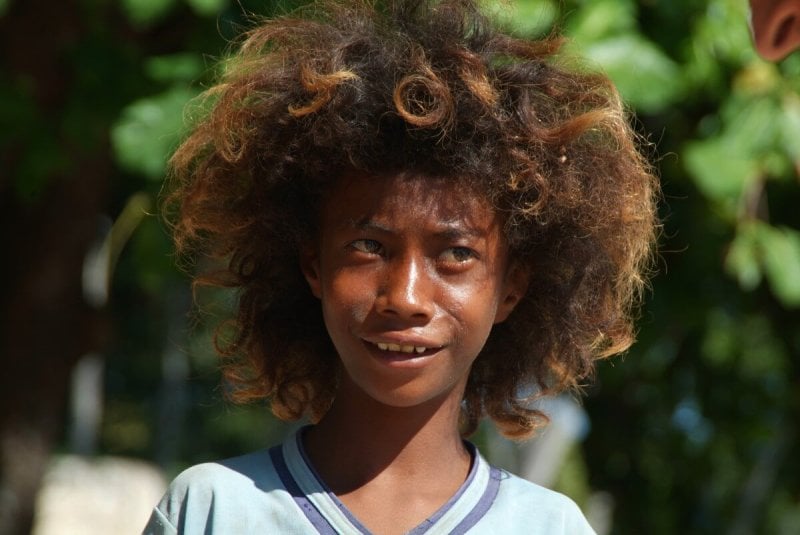Fur keeps animals warm when it’s cold at night and protects them from the sun during the day. Human ancestors were able to lose most of their body hair because they had the unique ability to compensate with fire, shelter and clothing.
…
[A] thick coat of fur could have led ancient humans to overheat in the hot noonday sun. “If you’re wearing a great big fur coat in the middle of the African savanna in the hot season, you’re going to be way too hot,” [evolutionary biologist Mark] Pagel said.
…
But if hair can lead to harm, why did we keep it on our heads?
As bipeds, or animals that walk upright on two legs, our heads are directly exposed to the sun. Near the equator, where humans evolved, sun exposure can be overbearing, and head hair helps people avoid overheating. “It’s sort of a built-in hat,” Pagel said. Head hair also helps retain heat at night.
Sexual selection also may play a role. Humans don’t just have head hair; we style it. Ancient people may have, too… “We don’t just have head hair,” Pagel said, “but we have it in a form that we can make really attractive to members of the opposite sex.”































